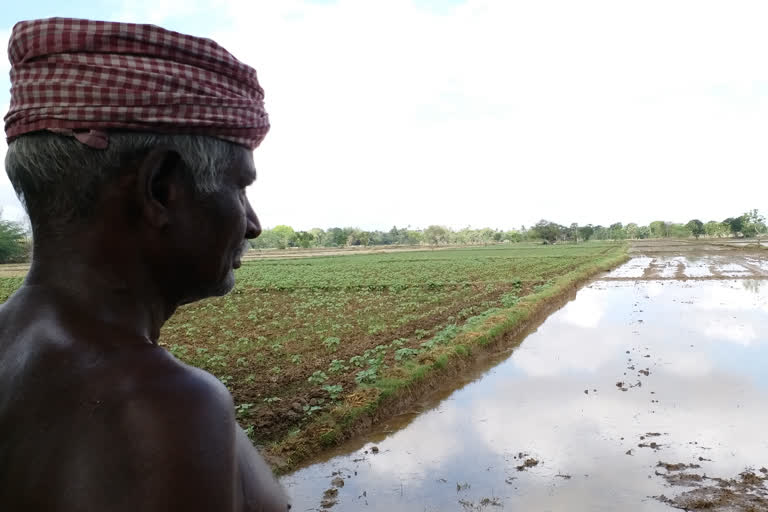Hyderabad:The Telangana government is engaged in consultations with stakeholders, ranging from the academicians to scientists to farmers, to prepare a ‘comprehensive’ agriculture policy that would address the agricultural challenges of the state.
For farmers to receive fair price for their produce, implementation of supportive market reforms are required.
Instead of setting glorified goals, an action plan must be evolved and followed to achieve those set goals.
Unfortunately, we still have not formulated a comprehensive agriculture policy to defeat the unprofitable age-old practices rooted in the society.
Strengthening farmer-friendly food production, supply chain, market, distribution and food processing sectors will lead to increased farmer confidence.
At a time when the Telangana Government is at the anvil of a comprehensive agricultural policy to ensure good support price to the farmers, the central government also should unveil new reforms to benefit country-wide farming community.
No comprehensive cultivation system has yet been evolved with respect to what to produce, how much to produce, the needs of the people and the demand for exports.
Traditional and stereotypical cultivation has widened the gap between the demand and supply and instability in prices.
Regulators are not keen on controlling if traders are indulging in price fluctuation based on market indices. Governments have failed to control the market forces that are behind falling prices when demand and profits are high.
The National Agriculture Market (e-nam) system was brought in but it needs to be strengthened by correcting its flaws.
The rulers are well aware of the fluctuations in market prices during the main crop season.
The consumers and the farmers will benefit greatly by ensuring that the crop raised is consumed locally and by identifying and promoting special clusters for promotion of exports.
Fixing prices based on the actual cultivation costs and the governments purchasing them locally in their respective states will yield good results.
In order to implement this plan, the cropping pattern should be changed based on the nature of the soil, water availability and climatic conditions.
The Telangana government intends to move forward with a controlled approach in this regard. It is said that a comprehensive agricultural policy will be introduced after extensive discussions.
Prices will be under control when crops are raised based on a systematic plan of their selection, and demand in different seasons.
It is the agriculture sector that has sustained the country during the current pandemics.
At least five food processing units should be established for each district in the country and should be linked with export-based clusters with them.
We have the mapping technology at hand now, but could not assure the farmer of crop insurance.
Farmers are favourable to regulatory crops policy in Telangana, and they are willing to follow the advice of the government.
Their worry is that who would come to their rescue if prices fall due to market oscillations and whether the government would help them during such crisis or not. Their fears are understandable.
The only way for the government is to undertake full-fledged purchase of the crop to ensure support prices. The Centre is planning a wide range of incentives for Farmer Producer Organizations (FPOs) but there is lack of monitoring of their implementation.
Supply of quality derivatives, crop loans to all growers, reduction of cultivation costs and support to the adoption of comprehensive farming practices such as dairy and poultry, raising demand for the produce locally, providing crop insurance facilities, showing the farmer the opportunities to get best commercial value for his produce etc., will turn a new page in the development of domestic agriculture sector.
Deficiencies such as cultivation of a single crop for years and non-adoption of change to suitable crop are affecting yields.
The monotonous cultivation also weakens the soil resulting in low yield and inferior quality produce and subsequent losses. Necessary crops should be promoted.
If food processing industry is encouraged in the vicinity as a cottage industry, the farmers will get better profits.
There should be change in the cropping pattern and the way of thinking of the farmers.
If paddy is raised in Kharif, it should be replaced with other cash crops like green gram, maize, black gram, barley, etc., as per the local demand, thus energizing the soil and gaining more income.
But in the wetlands where the soil is suitable for two paddy crops, alternatives are difficult. The best way is to depend on the advice of the scientists and government for the right type of crops, after their study of the nature of our soil, water feasibility, climatic conditions, etc.
A new agrarian policy should be developed in the country for profitable crops.
ALSO READ:India witnesses a steep rise in COVID-19 cases
